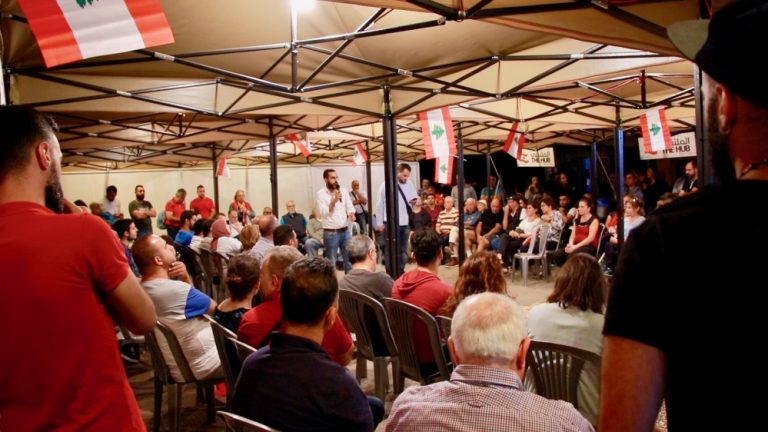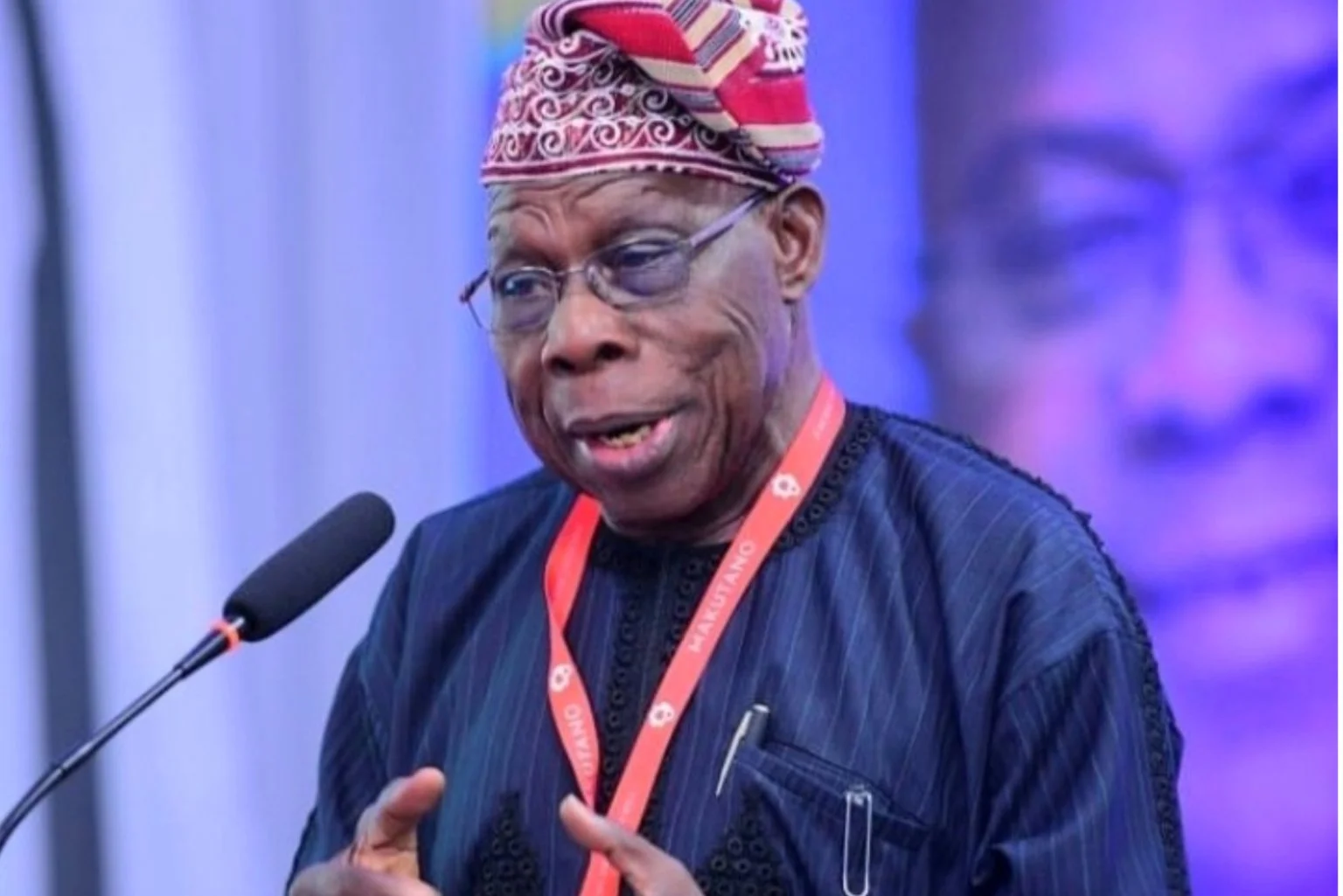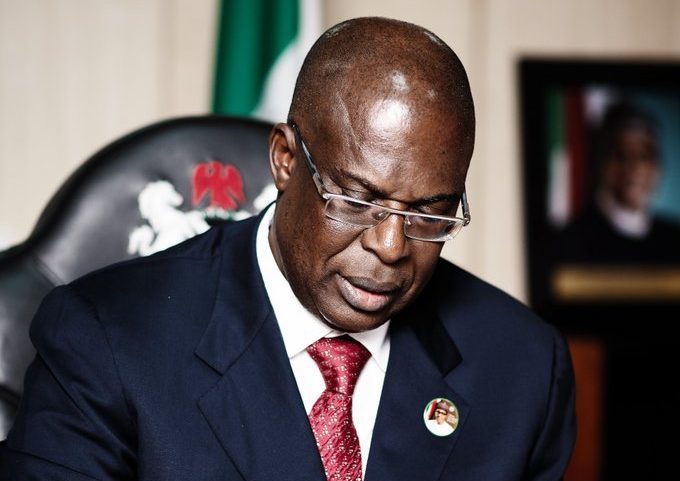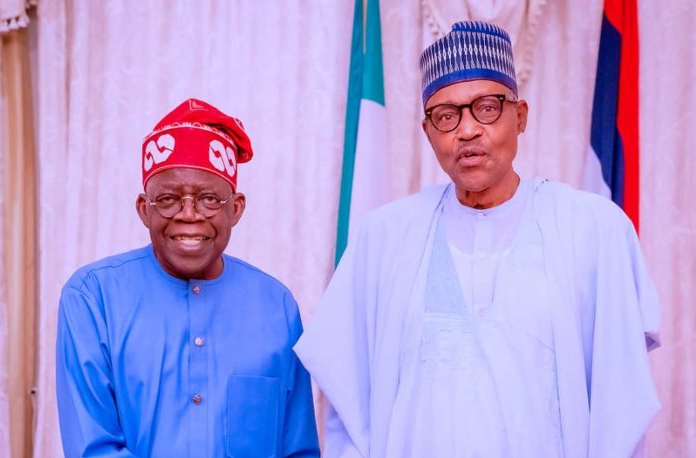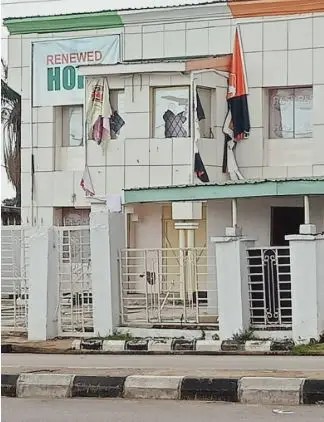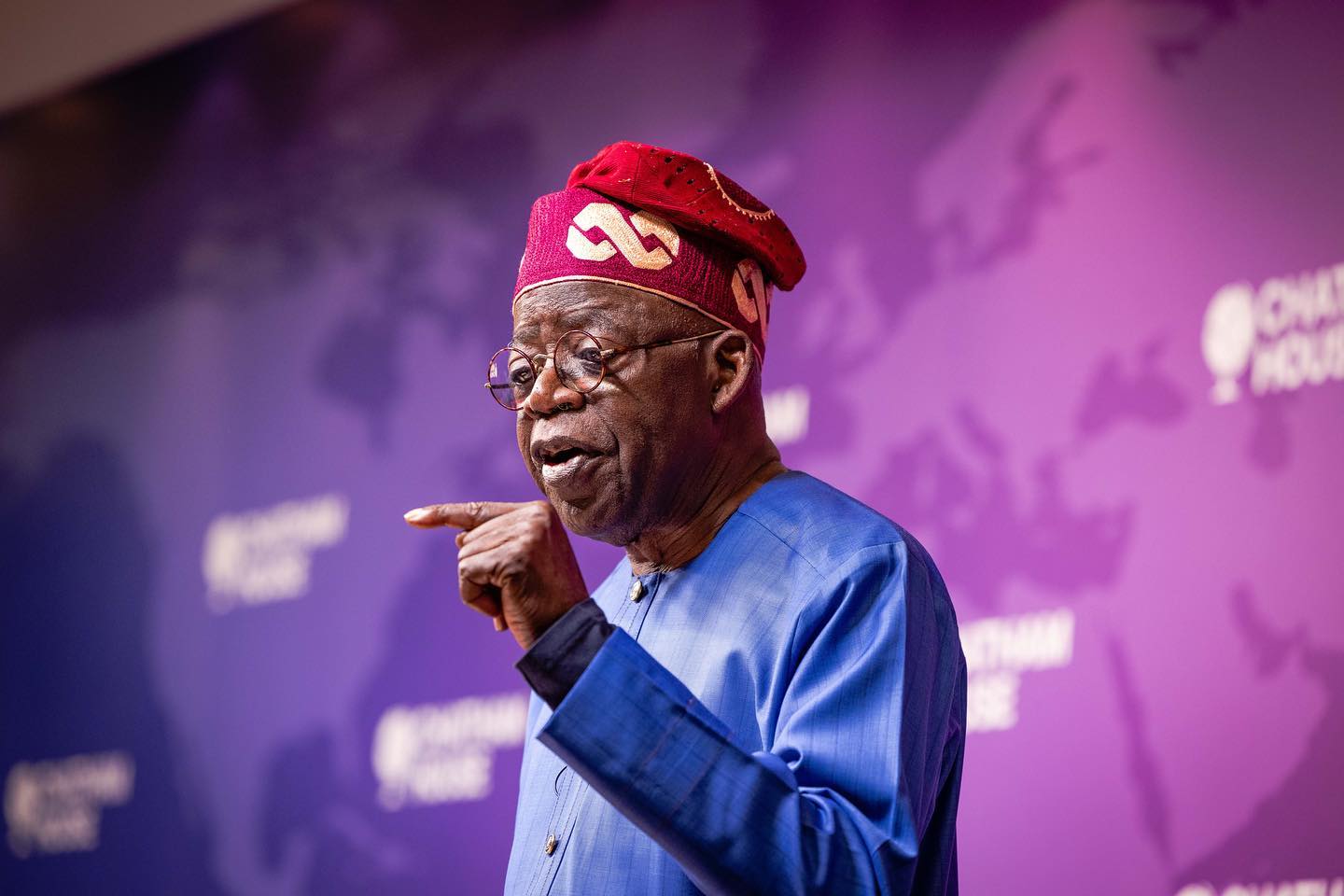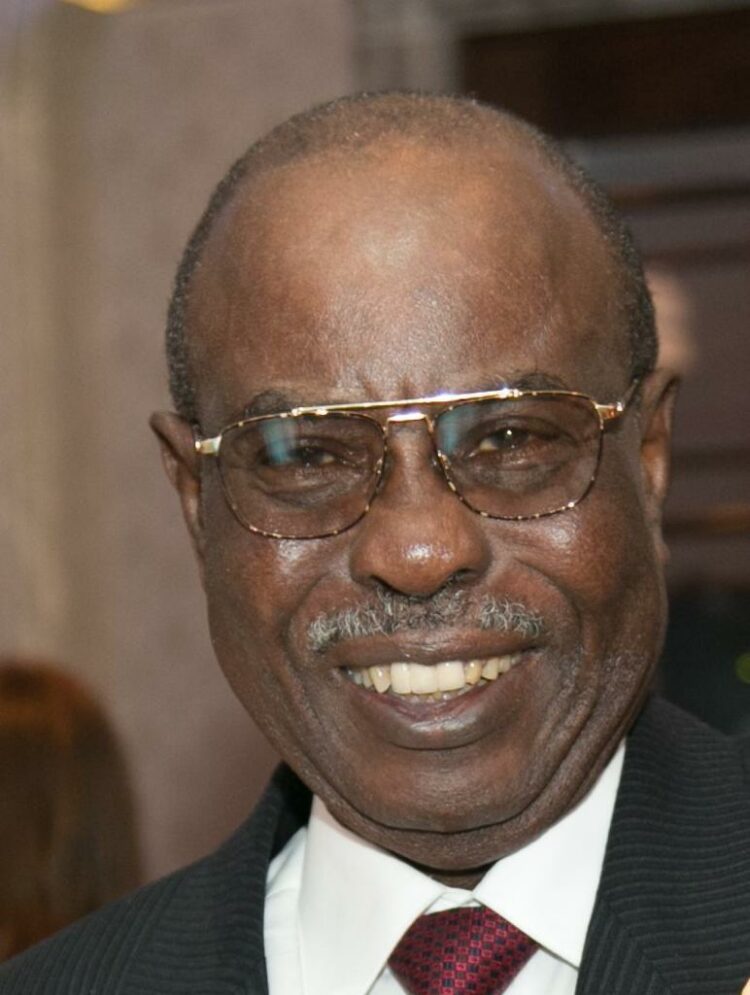Beirut, Lebanon – In the unlit parking lots around Martyr’s Square in downtown Beirut, the darkness is illuminated only by lightbulbs strung from camping-style tarps. Thousands have gathered here every evening for the last few weeks. Rows of plastic chairs are full, others sit on the floor or jostle among those standing to get a good view.
From afar, it resembles an outdoor festival, but this is no fairground. These private parking lots lie in the heart of the upscale Beirut Central District run by a private corporation, Solidere, which has effectively transformed the heart of the Lebanese capital into an island for the rich.
On any normal day, Solidere private security guards do not allow street vendors, let alone any sort of public political gathering or performance, in the manicured district. But now the security guards are nowhere to be seen as thousands flood the streets daily. It is not just the occupation of this “private” space by average citizens that is extraordinary, it is the unprecedented discussions and open public forums taking place under dozens of flimsy tarps.
‘We are a war generation’
In one tent, a debate is raging over whether protesters should return to blocking highway traffic (as they had done in the first two weeks of the now month-old uprising), or whether children should be allowed to boycott schools and join the protests.
“We are a war generation, we used to go to school under the bombs,” said one middle-aged woman, standing on the sidelines holding a microphone. “Our kids are learning the best civic education here, they are cleaning the streets, they are recycling, things they never learn in schools.”
She then took aim at the minister of education, who called for schools to reopen after weeks of road closures.
“We don’t have to listen to you minister, you have to listen to us now.” The crowd erupted in applause as one man shouted “Bravo, Bravo” clapping enthusiastically.
Is this a revolution or is it an activist movement? If this is a revolution, everything is allowed, there is no need for a discussion. We don’t have to ask for permission to occupy streets or attack ministries.
PROTESTER
“We don’t need these Zuama [tribal chieftains],” she continued. “Not the Sunni, Shia, Druze or Christian ones, and I’m for blocking the road.”
The moderator registers her position, marking it on a board, and passes the microphone to the next of many raised hands.
‘Is this a revolution?’
Rejection of the confessional power-sharing system, instituted during French colonial rule, has been a hallmark of the protest calls. But there is also general defiance of the ruling parties – former street militias that transitioned into politics since the end of Lebanon’s civil war in 1990.
“The people are the source of power today – not the ministers, not the members of parliament, not the zauma,” said another woman to applause.
Beyond the immediate tactics, there are also debates and lectures about longer-term economic and political realities and how the state functions.
“Have you ever seen a serious economic proposal without numbers?” a former bureaucrat asked in reference to the government’s one-page document detailing promised reforms and aimed at quelling protests.
These included the privatisation of state assets and the restarting of controversial land reclamation projects that would expand the coastline to create more real estate.
“Will these plans really save money?” she asked. “How much will they cost?” Other discussions addressed the concentration of power by feudal families, media ownership, water shortages, failed government projects, environmental destruction, unchecked corporate power, uneven wealth distribution and growing fears over currency devaluation.
The calm discussions are suddenly drowned out by heated arguments in another tent. One man shouts, urging the protesters to retake the nearby downtown highway.
We are a war generation, we used to go to school under the bombs. Our kids are learning the best civic education here, they are cleaning the streets, they are recycling, things they never learn in schools.
PROTESTER
“Is this a revolution or is it an activist movement?” a middle-aged man posed. “If this is a revolution, everything is allowed, there is no need for a discussion. We don’t have to ask for permission to occupy streets or attack ministries.”
The moderator disagrees: “We are here to discuss tactics and all voices should be heard.”
Using the courts to tackle corruption
One of those tactics has been the use of courts to expose corruption, as activists’ collectives have launched a number of lawsuits over recent years, long before the current protests began. But politicians have also isolated themselves from prosecution as explained in another presentation by Assaad Thebian, one of the activists who led the 2015 YouStink protests.
Under another tarp, Thebian gave an overhead presentation about Gherbal Initiative, a new project that seeks to demand budgets and transparency from government officials. A major challenge is that lawsuits launched against a Lebanese politician require a 25 million Lebanese Lira (around $17,000) deposit and losing a case could result in a fine of 200 million ($133,000) or up to a year in prison.
![For Lebanon Feature. Images by Habib Battah [DON'T USE] For Lebanon Feature. Images by Habib Battah [DON'T USE]](https://www.aljazeera.com/mritems/Images/2019/11/14/391772a8dab345309109e6029ecb5b17_18.jpg)
Like Thebian, many of those leading the discussions have been members of activist campaigns that have formed over the last decade. Groups such as Nahnoo (We), The Lebanese Coastal Alliance and the Save Dalieh campaign, which have fought for years to reclaim public properties that had been privatised, are now leading marches to private hotels and marinas built on public property, organising picnics there and facing off with riot police.
Read Also: Trump Ally Roger Stone Guilty Of Lying To Congress
The Lebanese government’s own studies have revealed that nearly $1bn in uncollected fines have accumulated from 1,000 illegal resorts that dot the coastline, many of them owned by politicians.
Lawyers, university professors, labour unions and student organisations are also arranging discussions and actions. Legal Agenda, a collective of lawyers who have been representing activists for several years, held a press conference this week attacking the government’s proposal to create a general amnesty law.
While this could help those jailed for minor offences, it could also lead to a lack of accountability for high-level corruption and corporate and government negligence that has helped produce dangerous levels of air and water pollution in Lebanon.
Marches and teach-ins have also been held in other cities outside Beirut and in front of state institutions such as the finance ministry, the central bank, telecom companies and the national electric company, which has failed to provide 24-hour electricity since the 1970s, despite receiving billions in government loans and investments.

